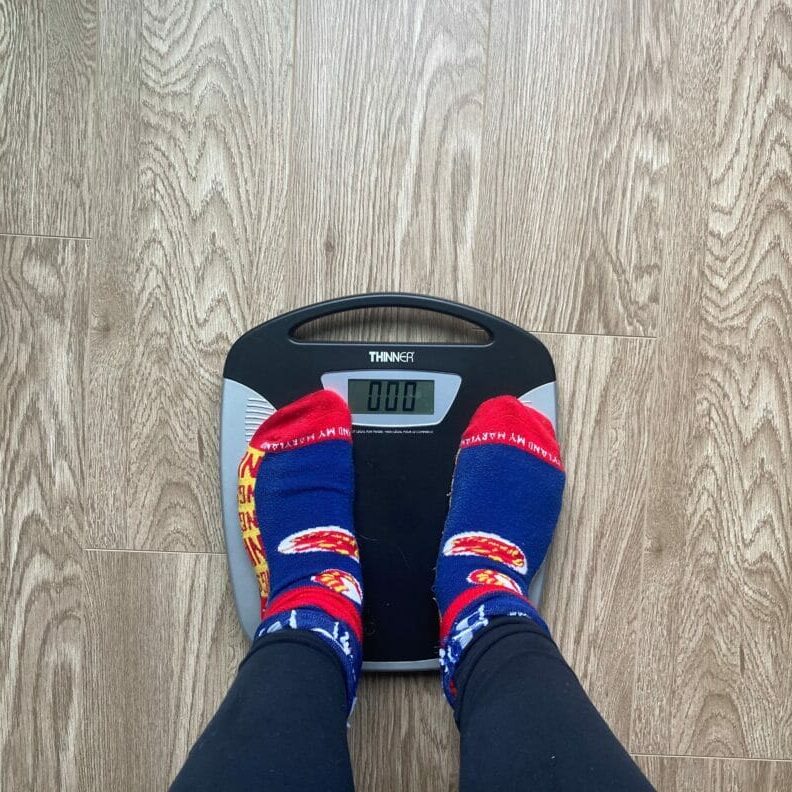
COVID-19 forced many students into solitude last year. When the dust settled and mandates relaxed, some of us came out looking a little different. It might seem natural to mention a friend’s changing figure, but please fight the urge. It’s never okay to comment on someone else’s weight — even if the change appears positive.
For my family, lockdown felt like a time warp. Days blurred, and much like Christmas vacation, our home was suddenly full of comfort food.
Stress-eating isn’t normal for me, but spending most of my time inside during those early pandemic days, my eating and exercise habits changed.
When it was announced students were heading back to campus this fall, I was excited at the prospect of meeting peers and professors in person. I was also nervous about the extra weight I now carry.
COVID-19 impacted us all differently
I wasn’t the only Canadian whose weight was impacted during the pandemic.
A study by Dalhousie University’s Agrifoods Analytics Lab in April 2021, reported that 42.3 per cent of Canadians felt they had put on weight during the height of COVID-19.
The study found 72 per cent of research participants experienced heightened stress levels during the pandemic, while 74 per cent found their eating habits had changed.
The stress of the pandemic may have triggered eating changes, but not all changes result in weight gain.
A CBC News article written by Kayla Hounsell in March 2021 reported a rise in eating disorders during the pandemic. The story explains that The National Eating Disorder Information Centre’s help services during the pandemic were up 100 per cent in usage during that period.
Eating Disorders Nova Scotia, a not-for-profit organization created to support Nova Scotians in overcoming eating disorders, has reported a 400 per cent rise in service requests.
Weight gain can also be attributed to eating disorders, such as compulsive eating or binge eating disorder.
Before commenting on a friend’s weight gain or loss, consider it may not be something to celebrate.
You never know what might be causing weight change
It isn’t just the pandemic wreaking havoc on our bodies and mental states. There are many reasons we may not want to share our weight gain or loss stories with others.
Nine years ago, when I got pregnant with my son, I assumed I’d gain weight and I was comfortable with the notion. In the beginning, however, I got sick.
I don’t know why they call it morning sickness because it didn’t discriminate based on time. I lost 25 pounds my first trimester, and it carried on through my second.
At first, the compliments were nice.
“You look so slim, what are you doing to lose weight?”
Eventually, it became tiring trying to avoid these questions.
Apart from having an unpleasant answer in store for them, I wasn’t ready to tell the world I was pregnant. And I shouldn’t have had to.
Our bodies aren’t the business of others.
Support at Dalhousie
Weight gain and loss can be triggered by many things, such as illness, changing hormones, mental state and food access. Fortunately, Dal has supports in place to help students in many of these areas.
It may come as a surprise that not all Dal students have the benefit of food security. Dal supports students through a student union run food bank. Students in need can apply for assistance through the DSU for a scheduled pickup time and obtain food at the SUB.
Dalhousie also offers support to students through an Eating Disorder Drop-in Group, mental health resources and social worker services, including stress and anxiety management.
Being there for each other
While our school is equipped to help us overcome some negative causes of weight fluctuation, it falls on us as peers to be there for one another.
Our words are impactful and it’s important we support fellow students by respecting boundaries surrounding weight. I believe one of the best things we can do is accept each other as we are.
In instances of body changes, the classic adage, “If you can’t say anything nice, don’t say anything at all,” is rendered moot. Advice to consider instead may be, unless you’re invited to comment, it’s best not to.






